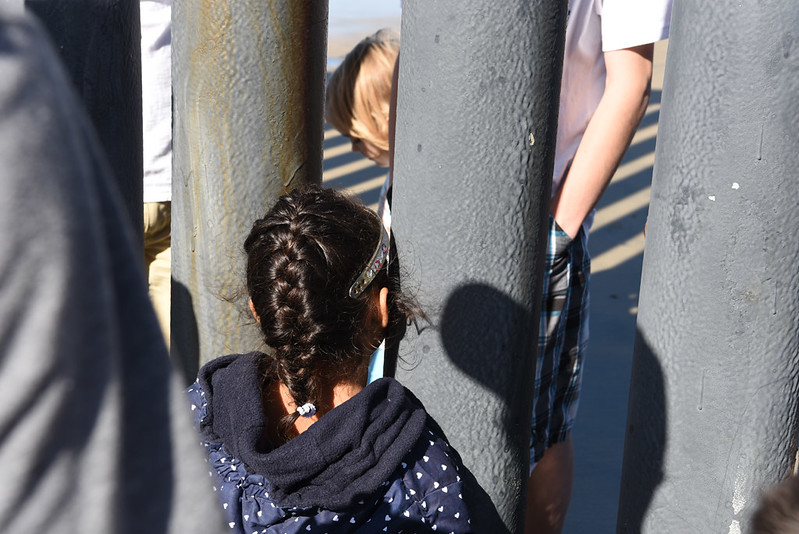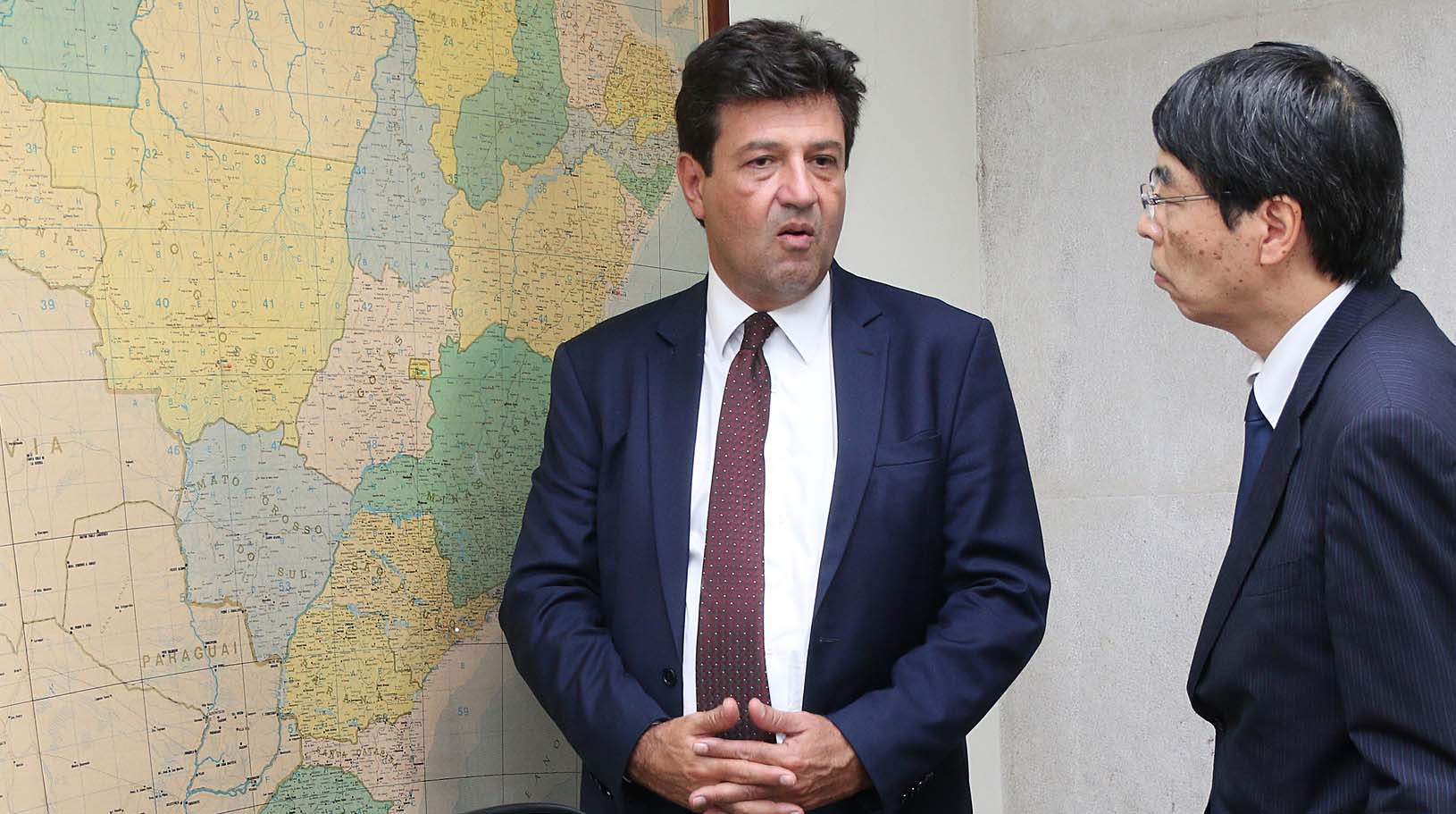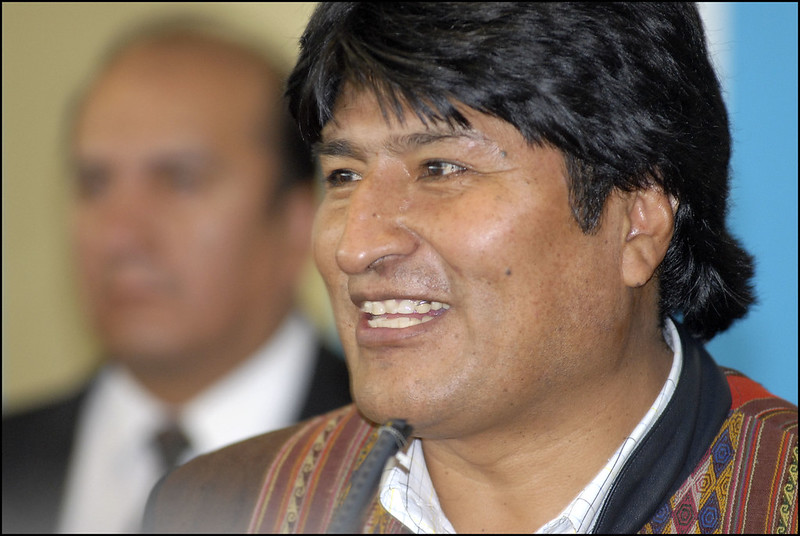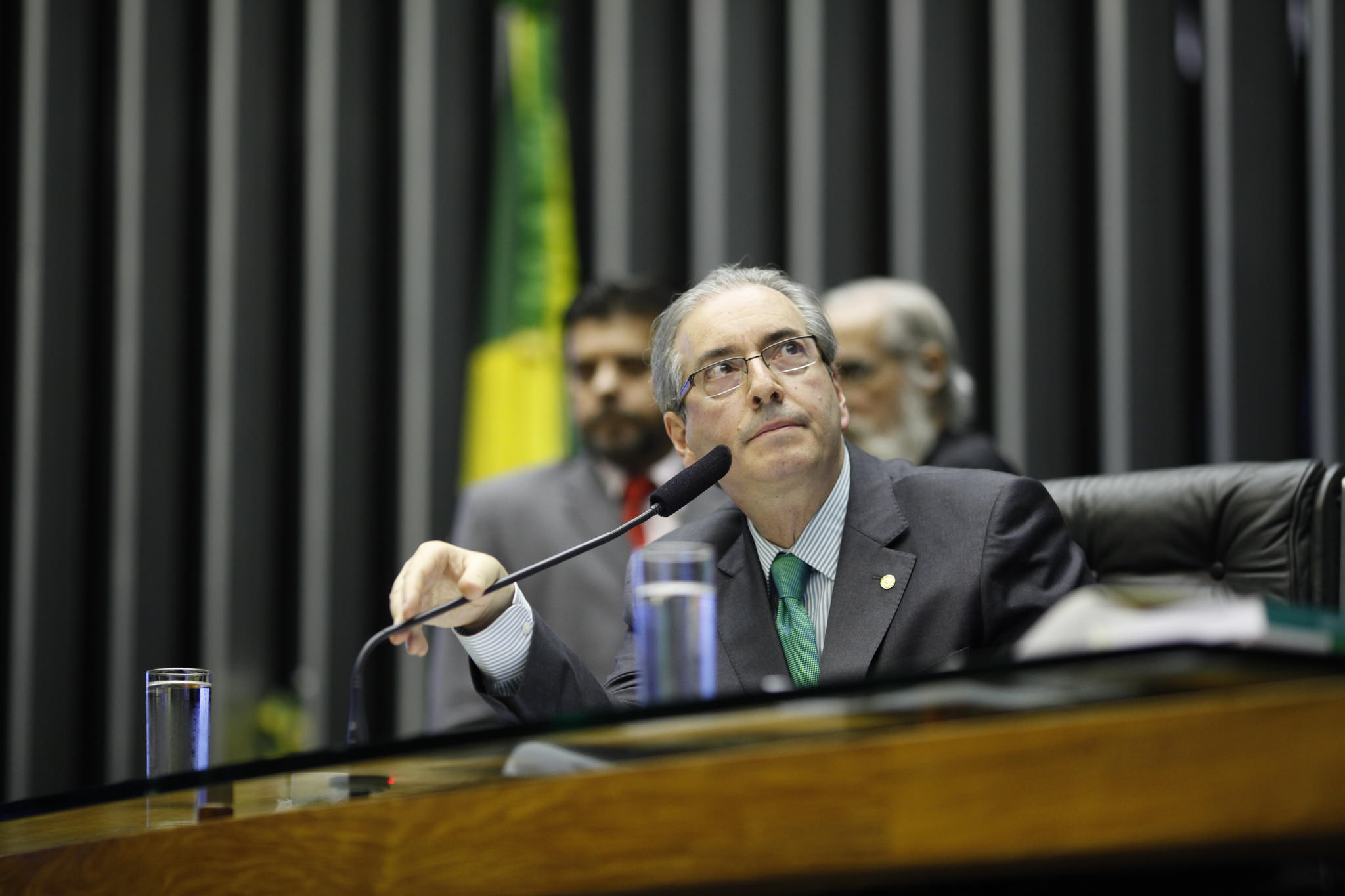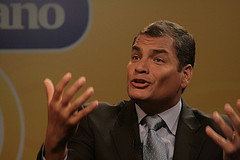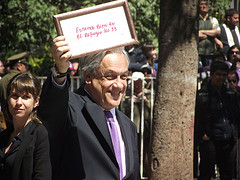
Latin America: Week in Review, Peru
Peruvian Intellectual Mario Vargas Llosa Wins Nobel Prize
October 8, 2010 By Staff
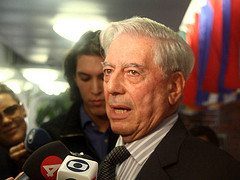
Peruvian author and Nobel Prize laureate Mario Vargas Llosa.
Today in Latin America
Top Story — Peruvian novelist Mario Vargas Llosa won the 2010 Nobel Prize in literature Thursday due in part for his writings about political corruption in Latin America.
The 74-year old Llosa received the news early Thursday morning in New York as he was preparing for a class he teaches at Princeton University. He is the first author from a Spanish-speaking country to receive the award since Octavio Paz of Mexico won in 1990.
The Swedish Academy, which awards Nobel Prizes, praised “his cartography of structures of power” and “trenchant images of the individual’s resistance, revolt, and defeat”.
Vargas Llosa is best known for his work concerning Latin America’s elite and the inner-workings of power in the region.
“Latin America seemed to be a land where there were only dictators, revolutionaries, catastrophes. Now we know that Latin America can produce also artists, musicians, painters, thinkers and novelists,” he said, according to the New York Times.
Besides his writings, Vargas Llosa also dabbled in politics with a 1990 failed presidential bid in Peru. He ran on a platform of free markets and free trade.
In picking Vargas Llosa the Swedish Academy made another literary choice tinged with politics, except this time from the right instead of the left. Vargas Llosa criticized Latin America’s right-wing dictatorships early in career, but split with the left after Fidel Castro imprisoned the poet Heberto Padilla in 1971.
Just Published at the Latin America News Dispatch
- Photojournalist James Rodríguez explores the controversy surrounding Goldcorp’s Peñasquito Mine in Mazapil, Mexico.
- Congress postponed a vote on a bill that would ease restrictions on Americans traveling to Cuba. Raisa Camargo reports from Washington.
- With Venezuela having gone through historic parliamentary elections on Sunday, Juan Fajardo takes a look at how both supporters and opponents of Hugo Chávez have used marches and street protests to vie for control of public space in this photo essay.
- A new government program aims to make Chile a haven for start-ups. David Mauro has the story.
Headlines from the Western Hemisphere
North America
- Mexico’s sweeping plan to revamp the nation’s local police departments, a bid to deter corruption and infiltration by drug trafficking organizations, moved forward this week when President Felipe Calderón made a formal proposal to Congress.
- As a prolonged conflict between drug dealers and the government has eroded civil order in Mexico, gangs of armed thugs in speedboats have begun robbing fishermen and tourists on Falcon Lake, in Texas.
- City leaders in Tijuana, Mexico, kicked off a two-week festival Thursday to showcase the city’s economic prowess and cultural riches, in an attempt to combat the negative reputation the city has gained due to Mexico’s drug war.
Caribbean
- A top U.S. senator just back from a five-day visit to Cuba to meet with officials there said he did not believe there was any chance of a prisoner swap between the United States and its communist neighbor.
- A refugee-advocacy group said Thursday that more than 70 percent of camps in Haiti, home to an estimated 1.3 million earthquake victims, lack proper international management nearly nine months after the disaster, leaving them at increased risk of sexual and gang violence, hunger and forced eviction.
- Former President Bill Clinton said desperately needed U.S. aid is coming to Haiti despite delays after listening on Wednesday to refugees in a sprawling homeless camp complain of a lack of food, jobs and housing nine months after a devastating earthquake.
- Tropical Storm Otto has unleashed floods that overturned cars, toppled power lines and washed out roads in the northeastern Caribbean, officials said Thursday, adding that efforts to free a grounded oil tanker have stalled.
Central America
- The United States won’t participate in Guatemala’s pilot adoption program, saying that the country has not provided enough details on the program and citing corruption concerns.
- Police seized 460 kilos of cocaine after a shootout with drug traffickers in the Caribbean region of Honduras, police spokesmen said Thursday.
- An increase in the water level of Lake Xolotlán in Nicaragua has left almost 7,000 people stuck in temporary shelters.
Andes
- Police in Colombia have arrested 34 members of a major drug trafficking network that smuggled tons of cocaine a month into the United States through Venezuela, officials said Thursday.
- Thousands of prisoners across Venezuela have ended a hunger strike after authorities agreed to some of their demands, a watchdog group said Thursday.
- Venezuela’s economy, which has shrunk for five straight quarters through June of this year, is “no doubt” on a recovery track and will certainly grow in 2011, Finance Minister Jorge Giordani said Wednesday.
- A judge ordered 13 police officers be held in preventive detention as court proceedings began against the perpetrators of a rebellion in Ecuador last week that President Rafael Correa called an attempted coup.
- It was a treasure for the Incas, the cause of a war, and once a backbone of Peru’s economy. Now as the world hungers for sustainable resources, bird excrement is once again as prized as gold.
- Several major newspapers in Bolivia have made a joint protest against a proposed anti-racism law which they say threatens press freedom.
Southern Cone
- Brazil state-owned energy company Petrobras granted General Electric a contract to convert a second gas turbine to burn sugarcane-based ethanol.
- An elite group of three paramedics with the Chilean navy’s special forces and 13 rescue experts will join the 33 trapped Chilean miners to help bring them safely to the surface.
- At least two people died during a strong storm that hit central and southern Paraguay early Thursday, downing power lines and causing major damage to homes.
Image: Globovisión @ Flickr.
